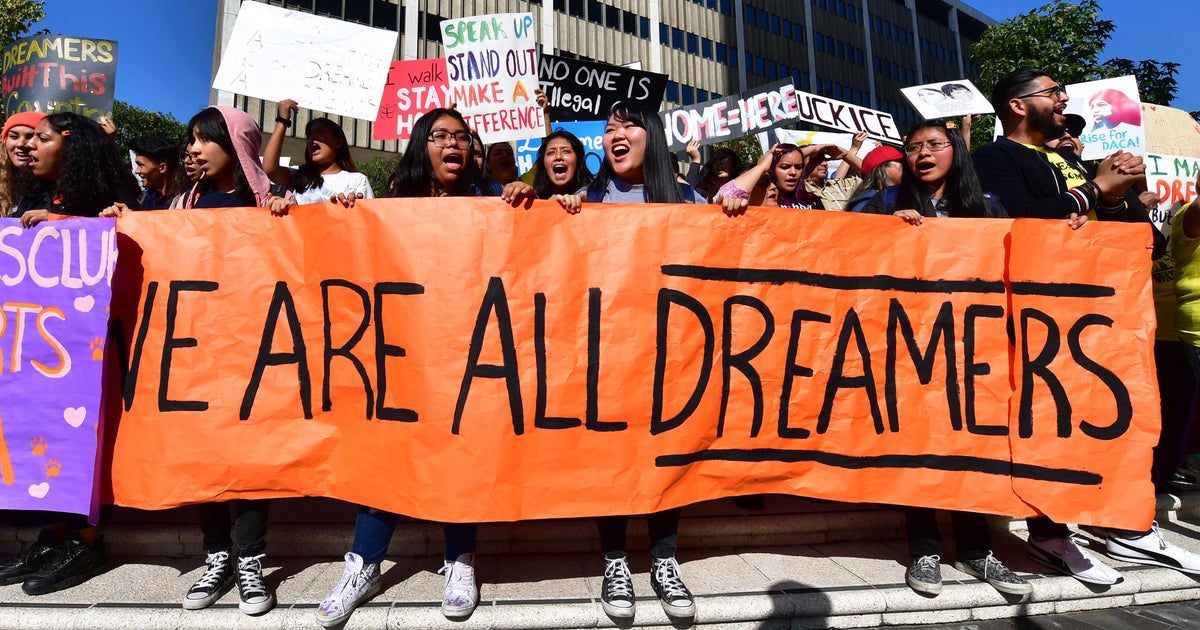California governor signs "sanctuary state" legislation
SACRAMENTO, Calif. -- California Governor Jerry Brown signed "sanctuary state" legislation expanding protections for immigrants in U.S. illegally.
It's a move that gives the nation's most populous state another tool to fight President Donald Trump. Brown's signature means that police will be barred from asking people about their immigration status or participating in immigration enforcement activities starting Jan. 1.
Jail officials only will be allowed to transfer inmates to federal immigration authorities if they have been convicted of certain crimes.
California is home to an estimated 2.3 million immigrants without legal authorization.
"These are uncertain times for undocumented Californians and their families, and this bill strikes a balance that will protect public safety, while bringing a measure of comfort to those families who are now living in fear every day," Brown said in statement.
White House press secretary Sarah Sanders, asked for a response, told reporters that she hopes Californians will "push back" on their governor's "irresponsible" decision.
The measure came in response to widespread fear in immigrant communities following Mr. Trump's election. He railed against immigrants in his campaign and promised to sharply ramp up the deportation of people living in the U.S. illegally.
Democrats hope blocking police from cooperating will limit the reach of U.S. Immigration and Customs Enforcement officers.
The measure introduced by the Democratic Senate leader, President Pro Tem Kevin de Leon of Los Angeles, cleared the Legislature with support only from Democrats. Republicans said it will protect criminals and make it harder for law enforcement to keep people safe.
The bill, SB54, originally would have severely restricted the authority of police officers to cooperate with federal immigration authorities. At Brown's insistence, it was scaled back to allow cooperation in jails.
Police and sheriff's officials, including jail officers, will still be able to work with federal immigration authorities if a person has been convicted of one of about 800 crimes, mostly felonies and misdemeanors that can be charged as felonies. But they will be barred from transferring immigrants to federal authorities if their rap sheet includes only minor offenses.
The changes convinced the California police chiefs association to drop its opposition, while sheriffs - elected officials who run jails - remained opposed. ICE Acting Director Thomas Homan has condemned the measure, saying California is prioritizing politics over public safety.
California's Democratic political leaders have enthusiastically battled Mr. Trump and his administration with lawsuits, legislation and fiery public rhetoric, particularly about immigration and the environment.
Some law enforcement officials say the impact of the sanctuary measure likely will be minimal because it bans immigration enforcement activities that few agencies participate in.
Immigrant rights advocates say it's important to codify restrictions with the force of law while adding new ones. For them, it's a rare victory during the Trump presidency.
The measure was dubbed a "sanctuary state" bill because it sought to expand so-called sanctuary city policies that have long been in place in some of California's biggest cities, including Los Angeles and San Francisco.
Brown and de Leon have said the bill does not give safe harbor to immigrants, particularly after the concessions Brown demanded.
Thursday is the deadline for young undocumented immigrants will not be able to apply for renewal of their DACA (Deferred Action for Childhood Arrivals) status. Under the program, these immigrants, who entered the U.S. as children have been able to receive renewable two-year deferred action from deportation so that they can work or go to school.
Acting Secretary of DHS Elaine Duke released a memo on Wednesday urging all those still eligible to request a renewal of their DACA status as soon as possible if they have not done so already.
"I urge you to make this a priority. The renewal process is quicker than an initial request and requires minimal documentation, so take the time now to fill out and properly file your renewal request. It is imperative that USCIS physically receives your request by October 5th," said Duke.
This is a developing story and will be updated.


